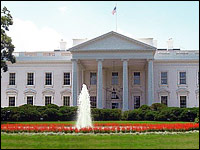
Let the exceptions and exemptions begin, Net neutrality critics cry, as the Federal Communications Commission’s newly approved rules take effect for all but a chosen few — mobile broadband providers, that is, with a Google-Verizon pact taking the lead.
Striking similarities between the FCC ruling and an August 2010 Google-Verizon proposal to the FCC trouble critics, who complain that corporate lobbying won rules that could hobble wireline providers with important wireless exceptions.
“Mobile broadband presents special considerations that suggest differences in how and when open Internet protections should apply,” reads the FCC’s “unofficial” post-vote statement. “Mobile broadband is an earlier-stage platform than fixed broadband, and it is rapidly evolving.”
Google and Verizon “both recognize that wireless broadband is different from the traditional wireline world, in part because the mobile marketplace is more competitive and changing rapidly,” reads their private August proposal. “In recognition of the still-nascent nature of the wireless broadband marketplace, under this proposal we would not now apply most of the wireline principles to wireless, except for the transparency requirement.”
More Dynamic Marketplace?
Wireless industry representatives like what they see.
“With the current demand for data and consumption of services enabled by next-generation mobile devices, we think the FCC vote enables operators to offer more choice to consumers and creates a more dynamic, more competitive marketplace,” said Mike Manzo, chief marketing officer at Openet, a wireless services vendor earlier involved in a PowerPoint presentation controversy that led critics to charge the firm with overzealous FCC lobbying.
Industry analysts, however, don’t see dynamic change anytime soon.
“There will likely be litigation over the FCC’s authority to enact the rules, and how the new rules should be interpreted and applied,” said telecommunications attorney Mark McCarty, a partner at Alston &Bird. “Moreover, Congress seems motivated to apply its own policy judgments.”
Plea for Mercy
Divided into three rules “subject to reasonable network management” entitled “Transparency,” “No Blocking,” and “No Unreasonable Discrimination,” the FCC regulations apply to both fixed and mobile broadband Internet access — but only under No Blocking.
Persons engaged in the provision of fixed and mobile broadband Internet access service “shall not block lawful content, services, non-harmful devices, or applications that compete with the provider’s voice or video telephony services,” the rule decrees.
The FCC makes no distinction under Transparency, and clearly exempts mobile broadband providers from Rule 3: “A person engaged in the provision of fixed broadband Internet access service … shall not unreasonably discriminate in transmitting lawful network traffic over a consumer’s broadband Internet access service.”
The reason for the exemption reads like a wireless provider’s weepy plea.
“Existing mobile networks present operational constraints that fixed broadband networks do not typically encounter,” the FCC reports. “This … creates additional challenges in applying a broader set of rules to mobile at this time.”
Fightin’ Words?
Then come what could be fightin’ words for wireline providers — a direct nod in the FCC statement to those joint venture partners, Google and Verizon Wireless.
“In addition, we anticipate soon seeing the effects on the market of the openness conditions we imposed on mobile providers that operate on upper 700 MHz C-Block spectrum, which includes Verizon Wireless, one of the largest mobile wireless carriers in the U.S,” the FCC reported. “Further, we recognize that there have been meaningful recent moves toward openness, including the introduction of open operating systems like Android,” which is Google’s operating system.
The Android OS reference puzzles Alston & Bird’s McCarty. The openness of an operating system “has no readily apparent relationship” to regulating broadband traffic, he told the E-Commerce Times. “Operating systems that are open source don’t really have anything to do with network traffic management — or use of bandwidth by applications.”
Some operating systems, however, are more open than others, and Android provides a good example, Opennet’s Manzo told the E-Commerce Times. “Innovations within mobile are still evolving and include some operating systems. The FCC’s current decision to limit regulations on wireless provides the opportunity to further explore these and other emerging technologies.”
The upshot: what the FCC terms “measured steps” — or baby steps — for mobile broadband; big adult steps for everyone else.
“The Net neutrality rulings will provide operators the opportunity to establish more flexible plans to subscribers, enabling consumers to receive only what they truly want out of their wireless plans,” concluded Manzo. “The rules will also allow operators to ensure future revenues, which will ultimately mean more investment in infrastructure and, in turn, provide subscribers with increased quality of service.”
And the effect on wireline providers?
“Any systemic changes to Internet access are hard to predict at this early stage,” Alston & Bird’s McCarty said.





















































Social Media
See all Social Media